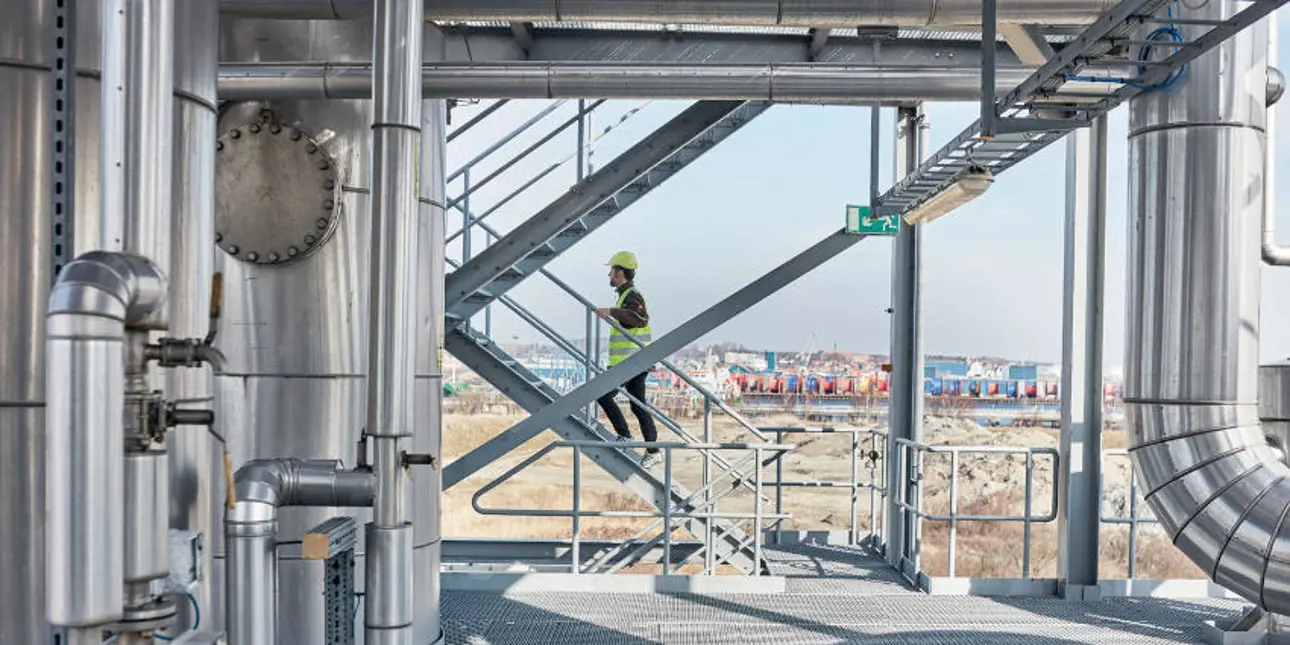Producing products for the future
Denmark’s Meliora Bio AsP has restarted the former Inbicon plant in Kalundborg, which had been idle since 2014. The completely modernized facility is now making advanced second-generation bioethanol, innovative food ingredients, and lignin products.

Meliora Bio ApS has recently bought the bioengineering company COMET, and together they upcycle crop residues from wheat straw that is collected from local farmers to produce second-generation bioethanol, prebiotic dietary fibers, and lignin. The newly modernized biorefinery aims to have the lowest possible CO2 footprint, with minimum energy and water use, while reducing its production waste to zero. This circular approach also benefits local farmers by fully utilizing their entire harvest, while generating a valuable new revenue stream and improving the circularity of the food chain.
Valmet’s BioTrac pretreatment process is a core technology in the biorefinery that transforms wheat straw residues to second-generation bioethanol. As a byproduct, the process also produces C5 sugar to make ARRABINA, a prebiotic fiber that is added to different foods to promote better gastrointestinal health.
The start of an innovative journey
“Our goal is to produce several thousand tonnes of ARRABINA and 4.5 million liters of ethanol at full capacity. We are also exploring the potential to use lignin as a substitute for bitumen in asphalt. Lignin’s future applications are a significant topic in the biomass sector,” says Henrik Maimann, CEO at Meliora Bio.
The Valmet BioTrac design has led to stable production and improved steam explosion and cooking efficiency.
When the pandemic started in 2020, the Danish government asked Meliora to produce sanitary ethanoll for hospital institutions. “Over that summer, we produced 2.5 million liters of ethanol for hospitals and institutions that needed sanitizers. During this time, we encountered COMET, which had patented and developed prebiotic food ingredients derived from straw and hemicellulose. After several months’ consideration, we decided to join this innovative project, marking the beginning of our current journey,” says Maimann.

The Meliora plant in Kalundborg.
Effective collaboration and assistance
Valmet has been involved with Meliora since 2020, and the collaboration has been positive. “We’ve enjoyed extensive cooperation, particularly in recent months, focusing on service and maintenance. Valmet’s experienced team has been invaluable, providing excellent support and maintaining open communication about necessary adjustments,” says Maimann.
“The operational dialogue is excellent, and we appreciate being able to bring customers to showcase the Valmet BioTrac technology at the Meliora site. It’s fantastic, and we’re very happy that our great collaboration with Meliora enables us to do this,” says Tomas Jonsson, Sales Manager Biomass Conversion, Valmet.

The wheat straw raw material.
Overcoming challenges
Valmet BioTrac technology plays a crucial role in production and in simplifying operations. “We’re very satisfied with the Valmet BioTrac technology. It’s robust yet straightforward, and once our teams mastered it, it significantly eased their workload. The Valmet BioTrac design has been instrumental in overcoming previous challenges, leading to stable production and improved steam explosion and cooking efficiency,” says Henrik Maimann.
Valmet’s BioTrac pretreatment process is a core technology in the state-of-the-art biorefinery.
Despite the successes, there have been some challenges. One has been optimizing the feeding system. Another is the volatility of ethanol prices, influenced by political decisions. “We avoid experimenting with the feeding system on our own due to its cost and because it is extremely valuable equipment. But we have experienced people from Valmet helping us when we need them,” Maimann says.
Market competitors and future prospects
COMET’s ARRABINA product is now a key business component for Meliora. “Our interdependence made merging a natural step. Prebiotic fiber is our most profitable product, and we will grow even stronger as one company. We now have 65 employees working on the site,” says Maimann.

Tomas Jonsson, Valmet and Henrik Maimann, Meliora in front of the plant.
Meliora was the world’s first bioethanol plant to use straw. It was built in 2008 and commissioned in 2009. The Polish company Orlen is now starting up a second-generation bioethanol plant as well, which will be the first significant European competitor. “We don’t view them as a threat due to their vast market size. It’s beneficial to have someone demonstrating the feasibility of such projects. As for the future, our strategy is to progress incrementally, validating prebiotic fiber sales before scaling up production. We’re confident in the plant’s capabilities, as results have been promising,” says Maimann.
The market for prebiotic fiber is currently substantial in the US, where Meliora exports its products. “We hope that by the end of this year or early next year, the EU market will open as well. We plan to keep our production in Denmark, but it may be possible to build a larger plant in the US,” he adds.
“We recognize that several investments are necessary for our future production, but timing is critical. Establishing a new plant takes at least two years from the decision point. So we have to align our timing with market demands. We aim to have a fully operational plant by next year. While this doesn’t guarantee immediate operation, the plant will be ready, allowing us to decide on scaling up production based on prebiotic sales,” Maimann concludes.
Text Elin Boström/Åsa Arencrantz
Related articles

